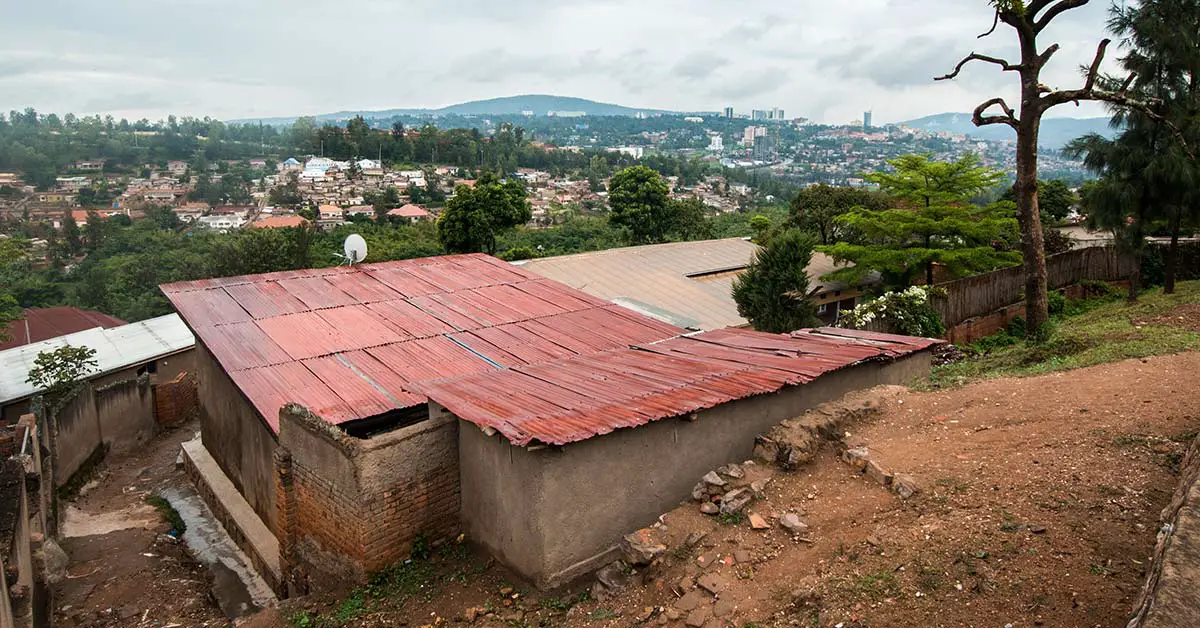Many of us take our ability to receive an education for granted. How many times did we complain about having to go to school when we were kids or to class in university or college? Meanwhile, there are people in the world like Claver Bizimungu who would have loved to have the same opportunity. He decided not to let his lack of formal education stop him from creating a better life for his community. He has been bringing electric power to his community since 2015. (1)
Meet The Man Who Brings Electric Power To Rural Rwandan Communities
Claver Bizimungu grew up in the high plateaus of the Rongi Sector in Muhanga District in Rwanda. Now 47 years old, when he was a child the norm was for all children to follow in their parents’ footsteps. Whatever your parents did for work, you started doing it as soon as you were old enough.
“If a man was a cattle keeper, most likely his children will become cattle keepers. The chances of parents taking their kids to school were minimal and so I found myself missing the opportunity of stepping in a class,” he explained.
For this reason, Bizimungu became a farmer just like his father before him. Having spent very little time pursuing formal education, he can barely read or write. That said, he didn’t let this stop him from bringing electric power to not just his home, but homes in his community and some neighboring ones.
His Inspiration
A few years ago, Bizimungu visited the Ngororero District. There, he saw how experts were using a hydroelectric power plant to generate electricity for some of the people who lived there. He took time to very carefully watch how they were creating this electric power. Upon his return home, he decided to apply what he had observed to see if he could generate electricity for his own home. He was successful. (2)
“I started with my own home and after it came out successfully, I decided to extend it to others as well,”
Read: Company Is Using Plastic Bottles To Make Roads That Last 3x Longer Than Asphalt
How He Did It
Prior to this, there was no electricity in the region. Due to the remote nature of their communities and the lack of funds, Bizimungu knew that getting the help of an actual provider was slim to none. He said at one point a utility company promised them power, but he knew this would take some time and likely be too expensive for many to afford.
With that, he gathered the necessary materials and, using the very minimal knowledge that he had, set out to construct his own mini-hydro electric power generator. He created a mini waterfall on a stream in his home area, then built a hydroelectric turbine to convert the energy from the flow of the water into mechanical energy. This uses a self-made hydroelectric generator that converts that mechanical energy into electrical power.
Electric Power For All
Not only was Bizimungu successful at providing electricity for his own home, but he was also able to bring this power to his community and the neighboring ones, as well. Before the pandemic, he had reached out to 60 homes. Currently, he has connected 40 homes to electrical power. His system can provide electricity at 12 kilowatts per hour and he charges each family just Rwf 1000 ($1 USD) per month. He charges such a low price because his goal is to make electricity as affordable and accessible as possible.
Not only has the project helped his community, but it has also made his familyès life better. With the small profit he does make after the purchase of materials, he has built his family a house and bought a small plot of land. He plans to use this land for agriculture.
The Struggles
This is a huge success and has truly improved the lives of the people living in these villages. That being said, the system is not without issues. It is not very weather-proof, so when bad weather hits, his installations often get destroyed.
“My cables are not of good quality because I lack the finance to afford the ones that are durable. Most of the ones I use are not resistant to such natural calamities,” he explained.
He also said that if he had more knowledge and education, he would be able to improve the system and also bring electricity to more people. He hopes that, by sharing his story, he may be able to get the training and help he needs to improve his systems. His goal is to power up to 300 homes. Share this story and perhaps his dream will come true.
Keep Reading: 17-Yr-Old Student Invents Sutures That Change Color if Wound Becomes Infected

